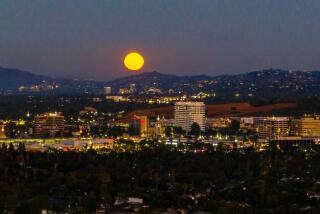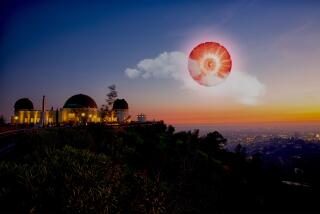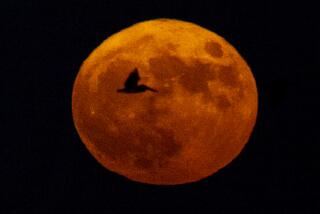A Pleasant Haziness
- Share via
According to United Press International, some unspecified lexicographers are trying to translate the phrase once in a blue moon into some more precise time frame.
Surely they can stick their noses into more important mysteries. For example, why are players in a tennis tournament “seeded” rather than ranked, and what first possessed people to say that they were going to “tap the admiral’s keg” instead of that they were going into a bar for a drink?
The latest spurt of lexicographic curiosity was prompted by the fact that the moon was full twice last month--a circumstance that last occurred in 1982 and that goes under the name “blue moon.” Moons also apparently turn blue when there is volcanic dust in the air. Some lexicographers will not rest until they know whether people mean once every two or three years when they say “once in a blue moon,” or whether they are talking about the intervals between big volcanic dust-ups --fortunately much rarer.
Actually we are less interested in knowing about the admiral’s keg or seeding than we are determined never to know how much time slips by between blue moons. The world is too precise as it is. Packages of cookies no longer come in dozens but in increments of 453 grams. Baseball is a game of inches and basketball of seconds. Air pollutants are measured in microns. It is impossible to watch a friendly football game without getting mesmerized by yards. Even the distance to the moon is not a nice soft round number.
In a world like that, the haziness about blue moons is not only rare but also congenial, and the time between them should remain as it is: anything we want it to be.
More to Read
Sign up for Essential California
The most important California stories and recommendations in your inbox every morning.
You may occasionally receive promotional content from the Los Angeles Times.













